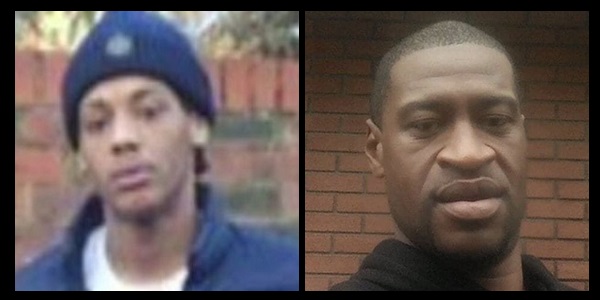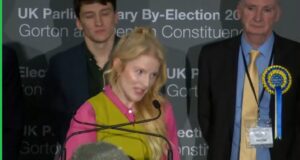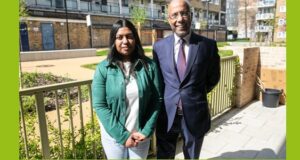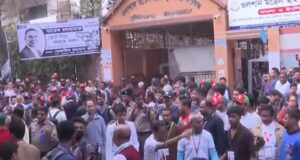THE PARALLELS are striking. It’s no wonder that since the killing of George Floyd the Black Lives Matter movement has become impatient to end the whitewash and secure real change. It’s no wonder East London politicians are speaking out about the racism behind this police brutality – but where were they when Rashan Charles died in Hackney? The following story contains detail which some readers may find distressing.
The first parallel
George Floyd was apprehended by police officers for a relatively minor alleged offence: there had been a report that he had handed over a counterfeit $20 note in a shop. One of the police officers felt it was necessary to kneel on his neck to stop any chance that he might run away from the police.
On 22nd July 2017, police stopped a car travelling through Dalston – apparently believing that someone in the car was in possession of illegal drugs. Rashan Charles, a passenger in the car, got out and ran away. A police officer chased him, following him into a corner shop where CCTV recorded what happened next. The police officer later stated that he had seen Rashan Charles swallow something and assumed it was a wrap of drugs – which turned out to be the case. The officer pinned Rashan Charles to the ground, lying on top of him to stop him running away.
The second parallel
Let’s assume that the clearly unsafe practice of kneeling on someone’s neck was not a recommended form of restraint in the Minneapolis police force. That would suggest that the police officer who knelt on George Floyd’s neck had either had no training in how to restrain people – or he ignored what he had learned. “Lie on top of them” may or may not be a permitted form of restraint in the Metropolitan Police.
As he lay pinned to the ground, George Floyd could be heard saying, “I can’t breathe.” The officer kneeling on him either did not believe him or chose to ignore that.
As he lay pinned to the ground, Rashan Charles did not speak. He had a wrap of drugs stuck in his throat and he could not draw enough breath to speak. He did flail around. The officer lying on top of him ignored that. Remember: this officer was pinning Rashan Charles down precisely because he thought he had seen Charles swallow something. It did not occur to the officer that what Charles had swallowed had stuck in his throat, and the flailings were not Charles trying to get out of the hold and get away: they were Charles struggling for breath.
The third parallel
After the George Floyd was killed, there were angry demonstrations – some of which led to attacks on property. The slogan uniting the protests was “Black Lives Matter”. That much you surely know – but can you remember what happened after Rashan Charles died, nearly two years ago? East London News wrote at the time: “After the vigil, protestors staged a short demonstration to the place where Charles died. It was an angry demonstration, some 150 or so strong, with protestors chanting “no justice, no peace” and carrying placards saying ‘Black lives matter’.” Some cars and rubbish bins were set alight.
The fourth parallel
Floyd and Charles both gave indications that they were suffering – which the police officers pinning them down ignored. The police do not only have a duty to uphold and enforce the law. They also have a duty to be aware of the physical condition of anyone they have apprehended – and a duty to intervene if things are going wrong. That makes these two such similar cases so much worse. It was not just the racism of the police officers pinning down these two men, but also the fact that they were not alert to what was going on and/or did nothing about it.
Is that a bandwagon rolling past?
As East London News wrote at the time: “The death of Rashan Charles has once more highlighted issues of who has the power in UK society – and increased tension on the streets of London.” Seeing politicians, especially in East London, queue up to support Black Lives Matter now does sometimes make you wonder – where were you when Rashan Charles died? If now, after the killing of George Floyd, is the first time you have spoken up, how sincere are you? Have you really converted to “Black Lives Matter”, or are you just feeling which way the wind is blowing and trying to maintain your popularity? The Black Lives Matter movement is looking for more than token support.
●Read more about Rashan Charles:
Rashan Charles
●Read more about it:
“Hostile Environment” threatens access to healthcare
Man in hospital after police brutality in Aberfeldy
 East London News A Force for the community…
East London News A Force for the community…




